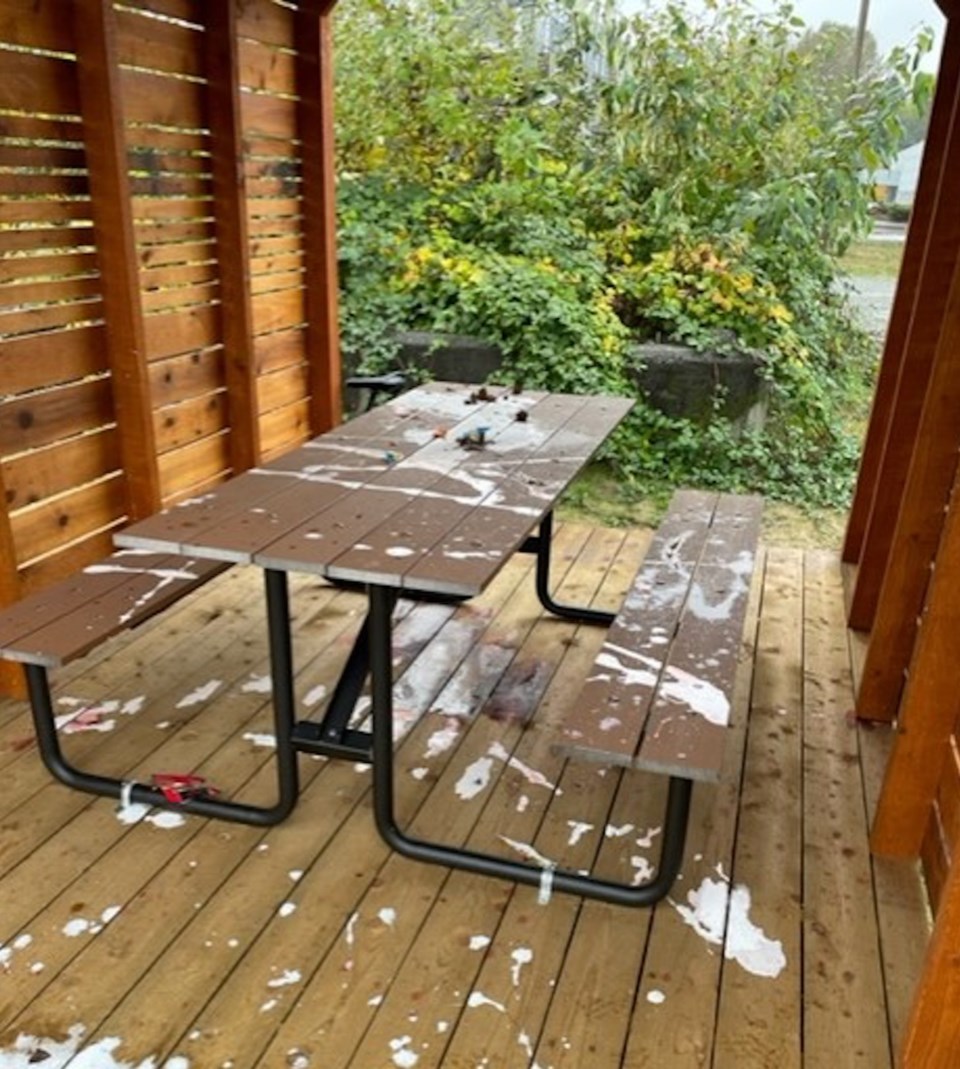It is clearly deliberate vandalism.
Cups of liquid and trash were thrown all about, and even feces was spread on the picnic table in the Neighbourhood Nook located at the Garibaldi Village Shopping Centre.
“People are freaking idiots!” is an understandable first reaction.
After all, this type of vandalism makes no rational sense.
In this case, the damage was to an inclusive, free-to-use, attractive, new public place where folks can huddle out of the elements as we head into winter.
It should be a win-win for all.
And the damage collectively hurts us financially, aesthetically and our reputation as a community.
But, according to a guide to dealing with vandalism by the , vandalism is not simply senseless property damage.
“Individuals vandalize for a variety of reasons, including to convey a message, to express frustration, to stake revenge, to make money, or as part of a game.”
Dig a little deeper, and it is apparent vandalism is a social problem that reflects how particular residents feel.
“Vandalism permits powerless individuals to strike out against the institutions which control them and to take charge of the situation themselves, arousing fear in others and raising their own self-esteem,” reads a U..
Happy, fulfilled and connected folks who feel valued and understood don’t need to destroy, in other words.
Individuals who feel they have the power to change their own situations for the better don’t either.
An example raised in the literature is that a bus stop may be vandalized by riders resentful they can’t afford a car (or perhaps the gas to drive it, these days).
Throughout the year, wanton destruction can be seen in spots around town on schools, businesses, bus stops and other public spaces.
While, of course, there are human beings behind the creation of these public spaces, it is easy to forget that, unlike on private property where there is a clear homeowner.
Destruction happens in every community, and there is likely no way to eliminate it completely.
However, reflecting with compassion on why this may be happening — vandals not feeling connected to their community, powerless or frustrated with how their life is going — may be a better path to reducing it.
In the meantime, the vast majority of us not destroying things can get involved with organizations that work on improving the lives of less-privileged locals (there are many, such as ) or with making our public spaces more inclusive and inviting, such as .
Or simply put on some gloves, grab some cleaning supplies and help clean up the mess you see.
Who knows, perhaps those responsible for it will see that and understand we all have a role to play in this town, and someone is impacted by their actions.
Disagree with this opinion piece? Send us a letter to the editor with your perspective on this or any Â鶹Éç¹ú²úissue: [email protected].
